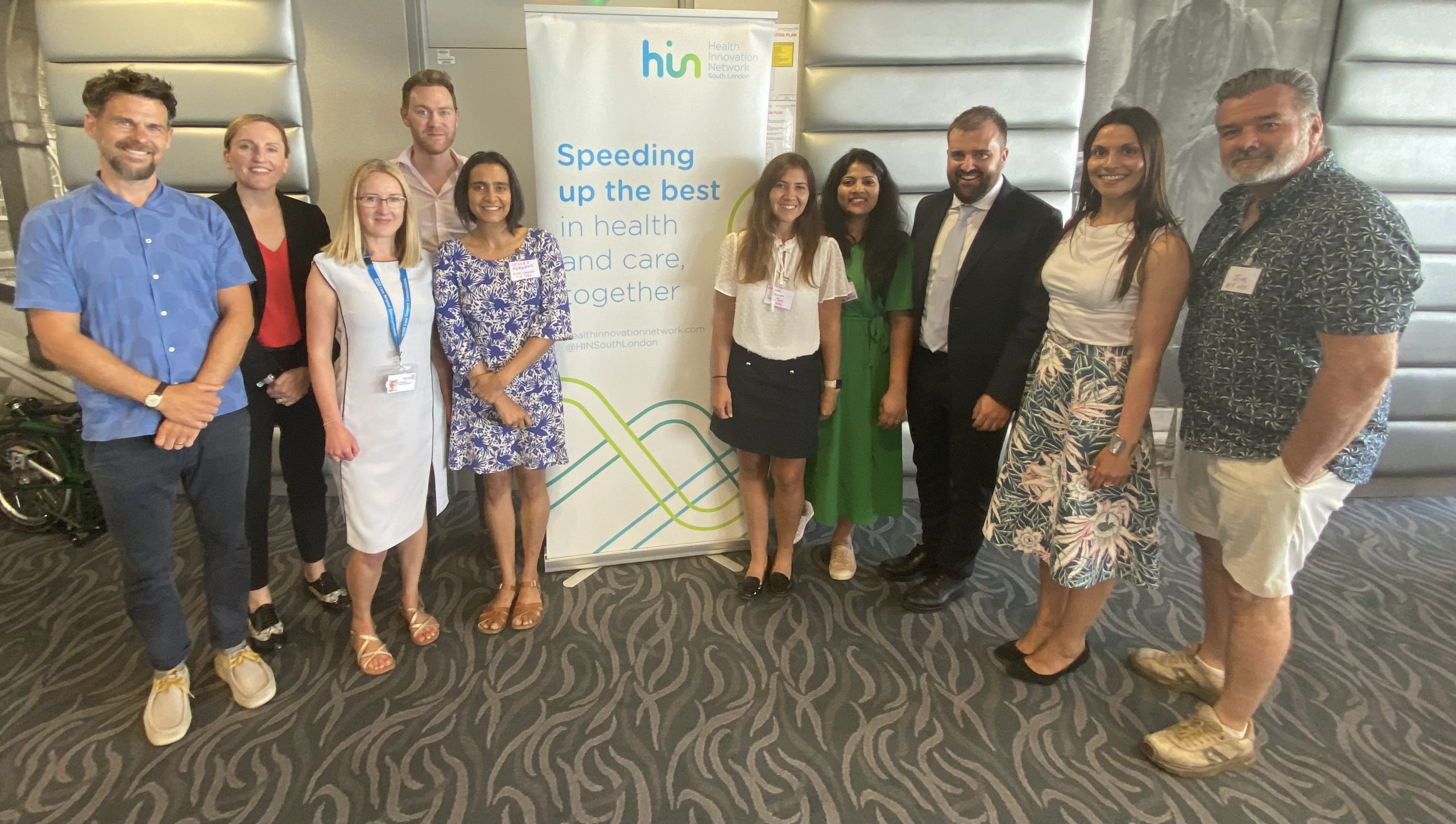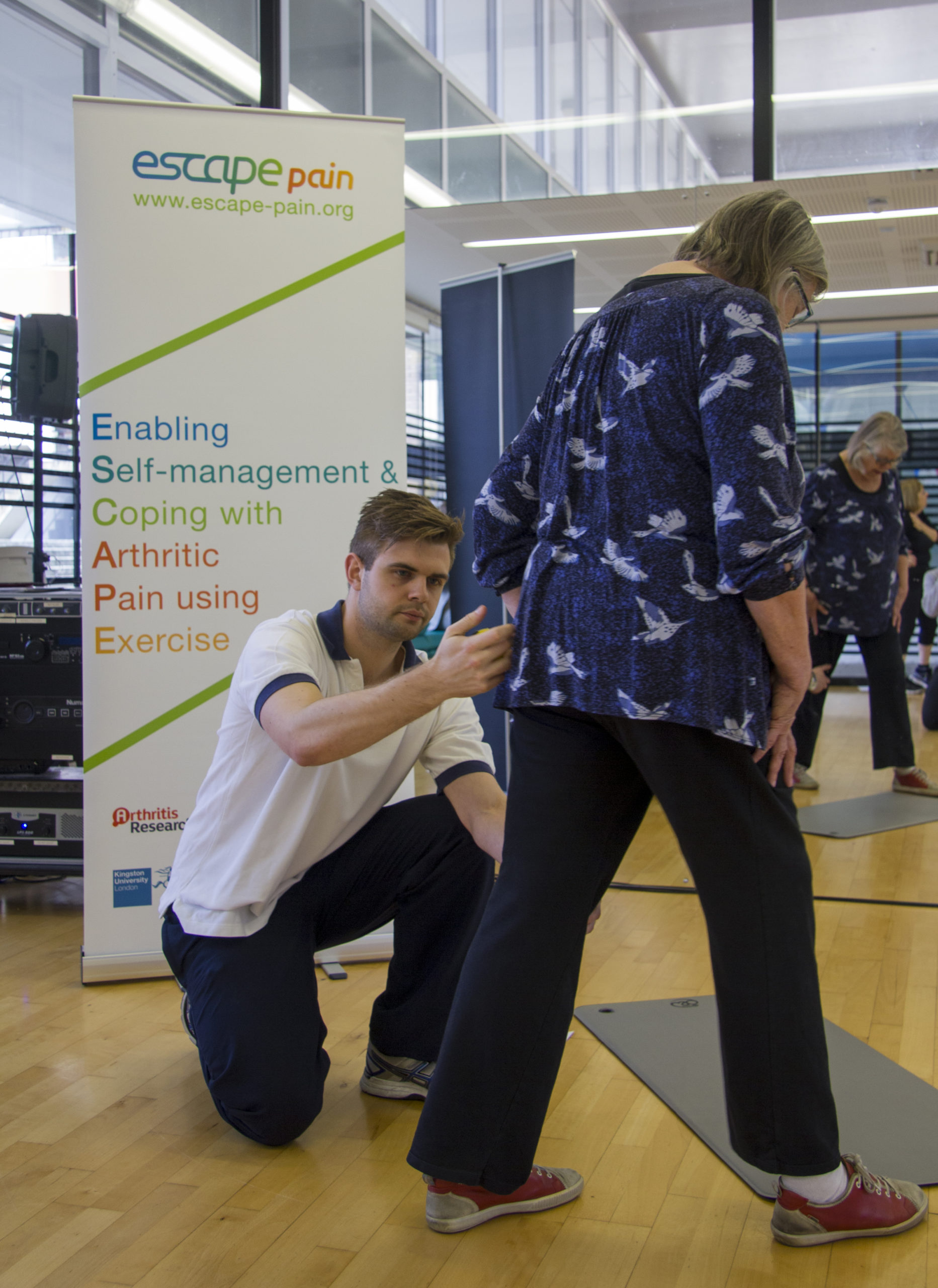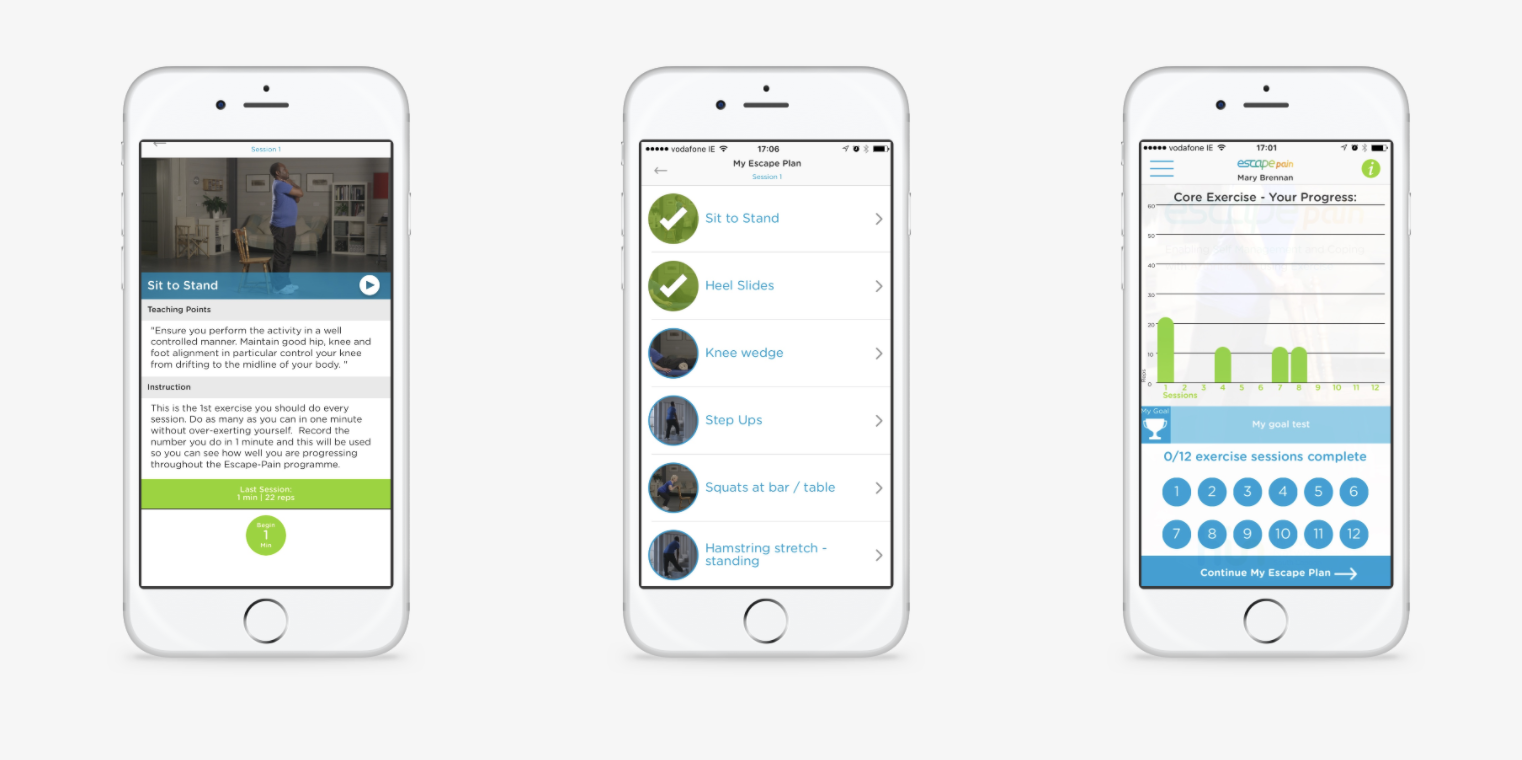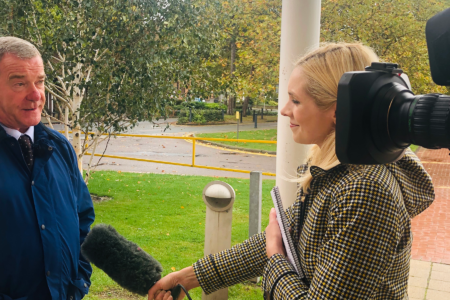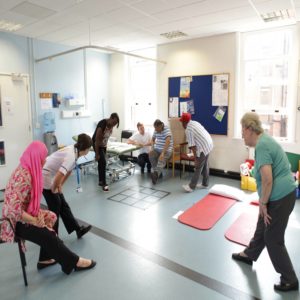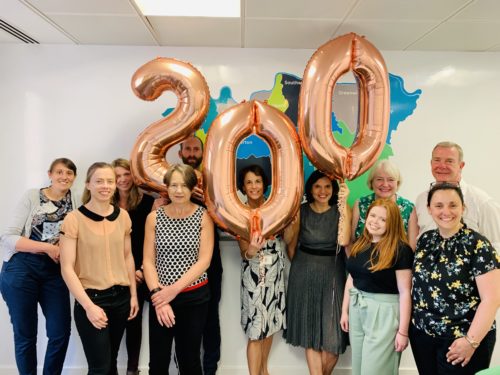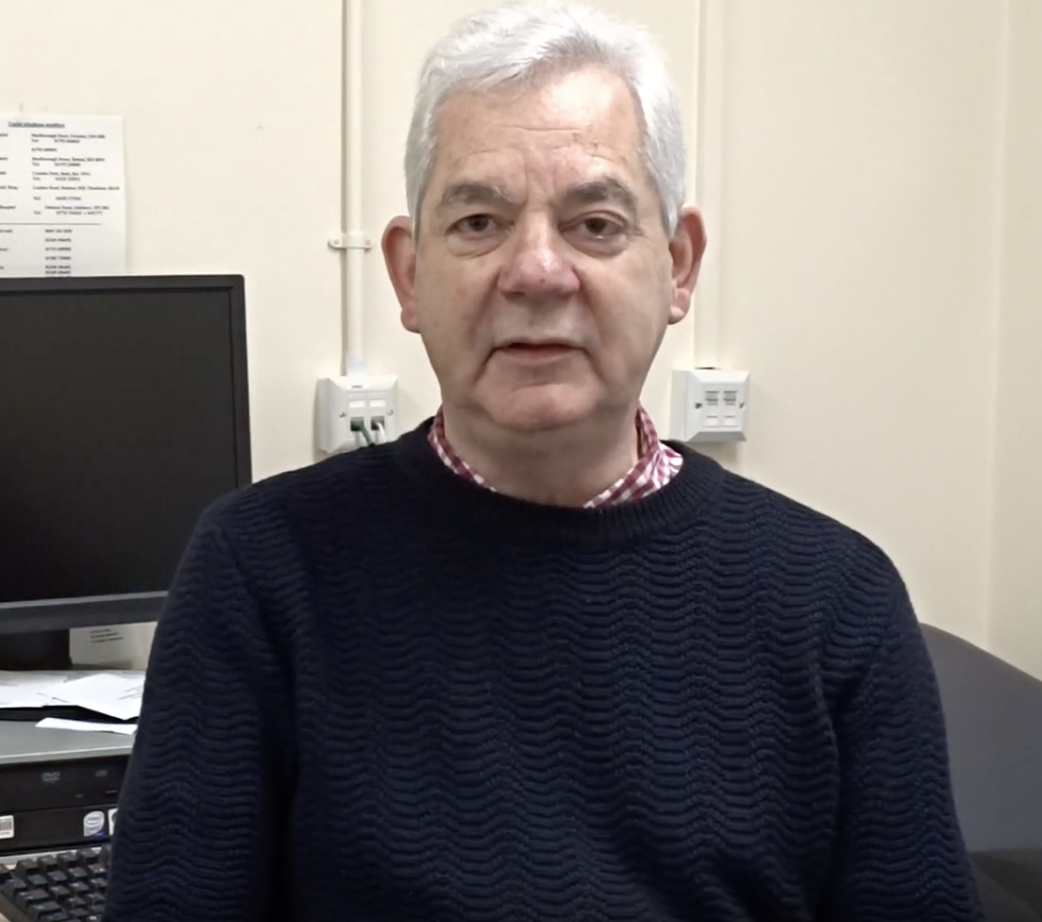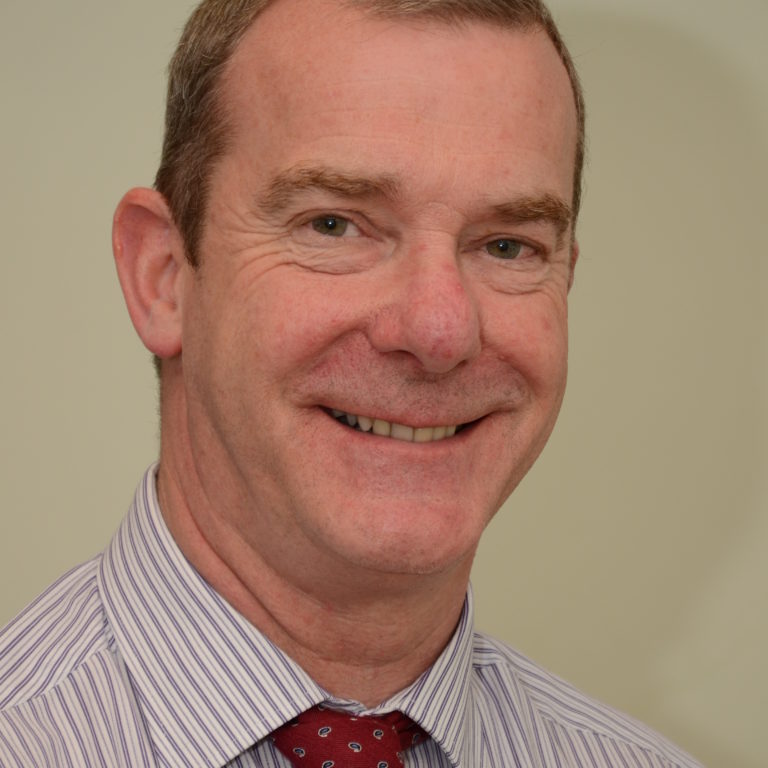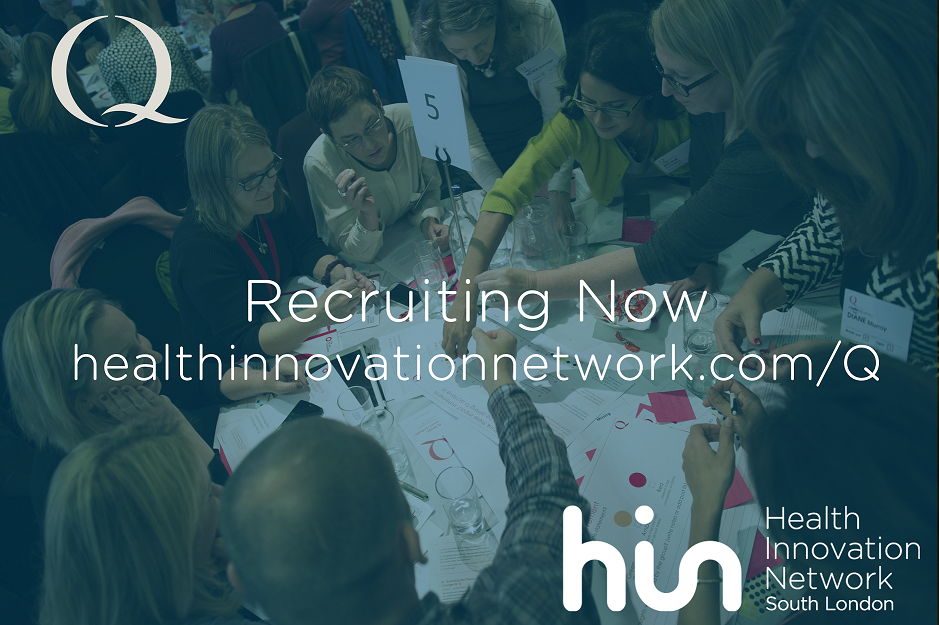What is Q?
Q is a diverse and growing community of people with experience and understanding of improvement who are committed to working collaboratively to improve the quality of health and care across the UK. Over time, Q will grow to be a community of thousands, including people at the front line of care, managers, researchers, patients, commissioners and policymakers. Our aim is to connect a critical mass of people in order to expand and accelerate improvement in the quality of care.
Q will make it easier for people with expertise in improvement to share ideas, enhance their skills and make changes that benefit health and care. Q is also the name for the infrastructure we are creating to support individuals with their improvement work and make it possible for the community to connect, share and collaborate.
What is the difference between Q and other initiatives, networks or programmes?
Q is intended to complement and underpin other initiatives, networks and programmes, not compete with them. Q supports people to deliver their existing improvement work rather than being an additional project. Q is aimed at individuals and will provide a long-term infrastructure to support them throughout their career, regardless of where they are employed. Q is not a taught development programme, but a network of support for those already knowledgeable in and undertaking improvement work.
Q supports other initiatives and programmes by:
- making it easier to understand what improvement work is being done, by whom, and where across the UK
- providing resources and platforms to connect and support across existing networks, working with and through others wherever appropriate
- making it easier to collaborate on areas of shared interest
- contributing to influencing the policy, organisational and cultural context to be more supportive of improvement.
Where did Q come from? Is patient safety part of Q?
Q began as an initiative to recruit ‘5,000 Safety Fellows’ following a recommendation of the widely respected 2013 Berwick report A promise to learn, a commitment to act.
Recognising those with improvement expertise was part of the report’s recommendations about how best to improve safety in the wake of failings of care at Mid Staffordshire Hospitals NHS Trust. The report made the case for a system devoted to continual learning and improvement.
In 2014 NHS England approached the Health Foundation to lead the design and delivery of the initiative. The Health Foundation’s UK-wide remit and funding means Q brings together those committed to health and care quality across all four countries in the UK.
The decision was also made to expand beyond patient safety to cover all domains of quality in line with the Institute of Medicine’s (IOM) definition: safe, effective, patient centred, timely, efficient and equitable. During the design phase of Q, we also formally extended Q beyond the NHS to all public, third-sector, community and private organisations and individuals with a role to play in supporting health as well as caring for people when they are ill.
In April 2016, sponsorship transferred over to (the then newly established) NHS Improvement.
Who funds Q?
Q is co-funded by the Health Foundation and NHS Improvement. Previously Q was co-funded by NHS England. On 1 April 2016, the Patient Safety team transferred to NHS Improvement, along with co-funding commitments to Q.
Are there other sponsors?
In line with the Health Foundation’s UK-wide remit, Q has benefited from advice and support from leaders and founding members in all four countries since its inception in 2014.
Early conversations are underway with Healthcare Improvement Scotland, Department of Health Northern Ireland and NHS Wales with the intention of them becoming ‘system-level partners’. By becoming formal partners alongside the Health Foundation and NHS Improvement, Scotland, Wales and Northern Ireland will reinforce their support for improvement and for sharing across organisational and professional boundaries. It will make it easier to maximise synergy between Q and other initiatives within each country. The aim is to formalise partnership arrangements in spring 2017.
Who designed Q?
To ensure the design of Q meets the needs of those of the community, in 2015 we collaboratively designed the initiative together with 231 founding cohort members.
In addition, throughout the design process we have involved eminent leaders of improvement and wider stakeholders. To date, we have engaged more than 500 people in the design of Q.
More about this process can be found in Building Q – learning from designing a large-scale improvement community.
Q will continue to evolve, being shaped and grown by members of the community and partners.
What is the Q Improvement Lab?
The Q Improvement Lab’s mission is to explore ways to build a more sustainable health and care system in the UK for now and the future. In a stressed and pressured sector, the Lab will provide time, space and opportunity to tackle complex problems.
Emerging from Q, the Lab will bring people together to explore, develop, test and spread ideas that can significantly improve health and care for people in the UK. The Lab will provide space – physical space, virtual space and headspace – for people to work together on high priority challenges that many stakeholders want to solve. A small team will support the process and invest time in curating and sharing the findings, as well as seeking to influence at a wider system level, building capacity for change across the sector. Through our planning and research phase for the Lab it became clear that having a dedicated, physical space for the Lab is crucial. As part of the pilot Lab, we have dedicated space at King’s Cross in London.
After the community voted, the first theme the Lab will explore is empowering people to manage their own health and care needs. They will be exploring the following topic -‘What would it take for peer support to be available to everyone who wants it to help manage their long-term health and well-being needs?’
Over the coming months we will identify a particular topic within this theme to explore over a nine-month period, starting in spring 2017.
We envisage that over the next few years we will establish a small number of Labs across the UK where members of the Q community come together, facilitated by a small team with specialist skills, to make progress on complex challenges facing the health and care system.
For more information, please visit q.health.org.uk/q-improvement-lab/.
What is the difference between Q and Generation Q?
Generation Q is the Health Foundation’s fully funded 18-month taught leadership and quality improvement programme. It provides senior leaders working in and with the health service (including charity organisations and policymakers) with a postgraduate certificate in Leadership (Quality Improvement) from Ashridge Business School (with the option of completing an MSc).
Q is not a taught programme, nor does it come with funded time. It is a long-term community of those with improvement expertise. There are fellows from Generation Q who have also joined Q – you can be both a Q member and a Generation Q fellow.
Being a member of Q
What are the benefits of joining the community?
People who join Q will join a diverse community of other improvers – a ‘home’ to turn to for inspiration and support. Q provides ways for members to learn, share and get advice from a wider network of peers, offering flexible development in a way that taught courses aren’t easily able to provide.
Members are added to Q’s online directory, hosted and promoted by the Health Foundation. We will offer access to online learning resources in exchange for your commitment to share what you learn.
There will be opportunities for sharing ideas, enhancing skills and collaborating on improvement projects, based on what the founding members identified as most useful. This will include Do-It-Yourself online resources, networking events nationally and locally, masterclasses and exchange activities (including site visits). Some of these are designed and organised through the central team, while others are managed through regional improvement organisations or self-organised by members.
Q is still relatively new, with some of the activities and opportunities still being designed as the community grows from hundreds to thousands. We are piloting activities together with members to ensure they genuinely add value. Individual activities and the portfolio as a whole will continue to evolve in line with feedback from the community.
What is expected of people who join Q?
The success of Q is largely dependent on the community. There is no minimum time commitment, but generally speaking the more you’re able to contribute, the greater the benefit. Some members will take a more active role in the community, while others less so and we expect individual involvement will vary over time.
We worked in collaboration with the community to develop a ‘compact’ that describes the expectations of those in the community and encourages a creative and safe environment for learning and improvement. The compact can be found on the Q website.
How long will I have Q membership?
People join Q as an individual, not a team or organisation. This means members remain part of the community when they change role, circumstance or organisation. Members of the community can share and collaborate with other members throughout their improvement career, even if they move abroad.
How much does it cost to join Q?
There is no membership fee to join the Q community. Travel and expenses are not covered by Q.
There will be times when we will cover travel and out-of-pocket expenses in relation to Q activities for those who are not in paid employment. This will need to be pre-approved and in line with the Health Foundation expenses policy.
What time commitment is required?
There is no minimum time commitment for members of Q. It has been designed to help support busy people with their current improvement work and ongoing development and to promote their visibility as a leader of improvement. Q should support members to tackle the challenges they are working on, rather than feel like an extra project.
Joining Q
Who is currently in Q?
We have 799 members in the community at the moment with numbers expected to reach the thousands during 2017. This number includes the 231 who helped to co-design Q, along with 216 who joined as part of a targeted pilot to test how we will grow the community in 2016.
352 members have joined as part of a phased approach to growing the community which is being rolled out across the UK. They joined from the North East and North Cumbria, West of England and South West.
We have recently closed the application window in the following areas – Scotland, Yorkshire and Humber, UCLP, North West Coast and the West Midlands and look forward to welcoming new members from these areas in June 2017.
We have partnered with a number of organisations that are helping us to grow the community. These are Healthcare Improvement Scotland, Public Health Wales, Health and Social Care Northern Ireland and the Academic Health Science Network in England. Our partners are helping to promote Q, and will also be delivering activities and opportunities for members at a local level.
When will opportunities to apply open up?
There will be phased opportunities to join Q during 2017. Anyone who feels they meet the criteria and is based in the area can apply and there will be no cap on numbers.
During May-June 2017, applications were open in the following locations:
- Wales (through NHS Wales and 1000 Lives Improvement)
- Wessex (through Wessex AHSN)
- Greater Manchester (through Greater Manchester AHSN)
- East of England (through Eastern AHSN)
- Kent, Surrey and Sussex (through Kent, Surrey and Sussex AHSN)
In August we will be opening applications in Northern Ireland, East Midlands, Oxford, and the Imperial College Partners and Health Innovation Network AHSN areas in London.
We anticipate opening up opportunities more widely at the end of 2017/early 2018.
What is involved in applying to join Q?
To join the community you will need to complete an application via an online portal – AIMS. As part of the process, you will be asked to reflect on your knowledge and experience of improvement and how you can benefit and contribute to the community. The application process should take one to two hours and you can pause and return to the process at any time.
Why are there selection criteria?
We worked together with the founding cohort and others to develop selection criteria for joining Q. The decision to have selection criteria was made after much debate. It is there to ensure those who join share an understanding of improvement and are able to contribute equally and as trusted advisers.
We are looking for people who have experience, knowledge and commitment to the collaborative improvement of health and care. We hope to attract people with many different sorts of experience and people whose knowledge has been gained in a number of ways (taught courses or on-the-job learning). Those applying should be able to articulate and reflect on the approaches used personally and by others involved in improving quality. They should also have experience of playing a role in efforts to improve quality across team boundaries.
Who assesses applications?
Applications will be assessed by a small panel of people who understand improvement led by our partner organisations and supported by the team at the Health Foundation and NHS Improvement. The partner organisations will assess applications from their area of the UK. For example, if someone based in the West Midlands submits an application then our partner organisation West Midlands AHSN will be lead assessing it, together with the core project team.
